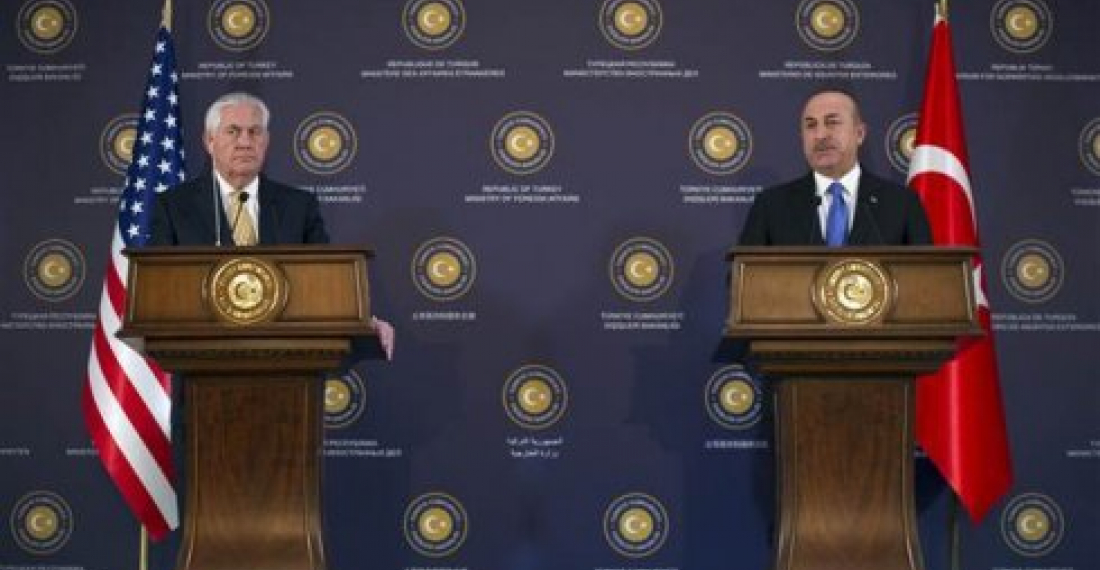Turkey and the United States have reached an "understanding to normalize ties" Foreign Minister Mevlut Cavusoglu said on Friday (16 February).
A joint statement issued by the two countries on Friday (17 February stated that:
The Republic of Turkey and the United States, as allies and strategic partners, reaffirm their mutual and unequivocal commitment to each other's security and defense.
"As Allies within NATO and strategic partners for over 65 years, both nations consider their relations as vital to furthering their shared goals and interests, as well as to the promotion of democracy, rule of law and individual freedoms throughout the world.
The statement was issued at the end of the visit of US Secretary of State Rex Tillerson to Ankara.
You can read the full text of the statement in english on Hurriyet Daily News here
It was also reported that a decision was taken to "establish mechanisms" to solve the series of ongoing disagreements between the two NATO allies.
The first meeting of this mechanism will be held no later than mid-March, Cavusoglu told reporters at a joint press conference alongside Secretary State Rex Tillerson.
In his first meeting in the Turkish capital late on Thursday, Tillerson met President Recep Tayyip Erdogan for discussions amid deep problems in the strategic relationship between Ankara and Washington. Turkish presidential sources said Erdogan "clearly" told Tillerson about Ankara's expectations on Syria and Iraq, as well as the fight against terror, in a meeting that went on for over three hours in Ankara.
source: commonspace.eu with Hurriyet Daily News
US Secretary of State Rex Tillerson and Turkish Foreign Minister Mevlut Cavisoglu at their press conference in Ankara on 16 February 2018.






